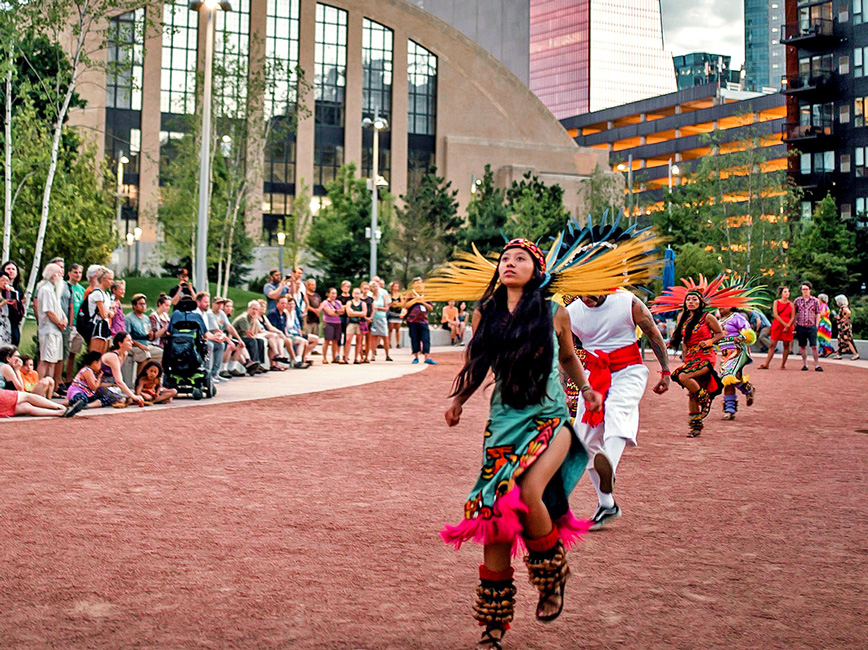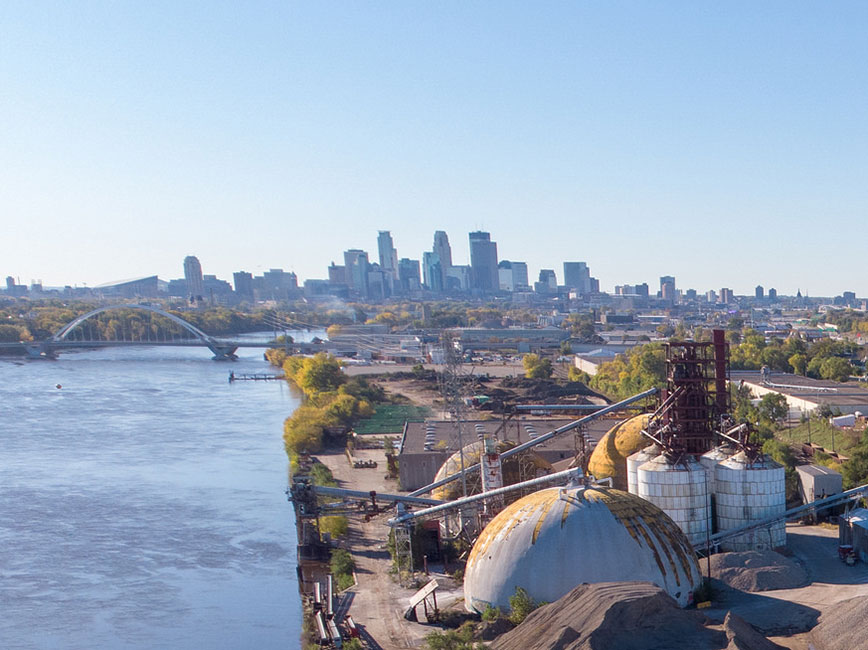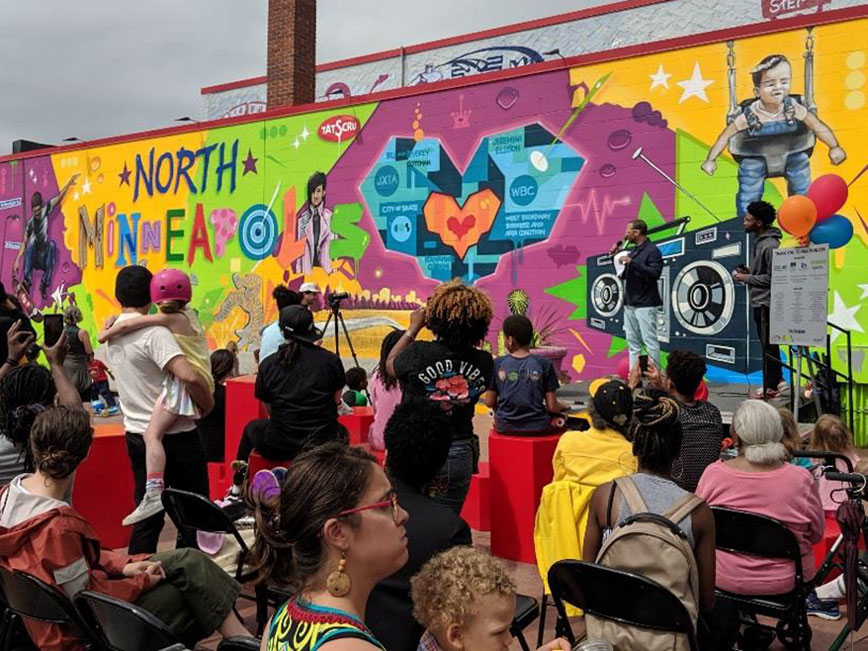Emergency relief and response
In the early stages of the COVID-19 pandemic, the mayor made clear that the city would not set aside its commitment to targeted, inclusive economic growth. Instead, he pledged to double down on the work underway and go farther where possible. And in the aftermath of the civil unrest that followed the killing of George Floyd, he has stayed true to his promise to dedicated city resources first where they are needed most.
The mayor’s office has also led in partnership with community to advance Minneapolis Forward, the citywide path to recovery and transformation and a commitment to doing things differently. Earlier this year the mayor and Council Vice President Andrea Jenkins invited the Minneapolis Forward Community Now Coalition Members Community Now Coalition members to lead the way int transforming Minneapolis into a stronger, equitable, inclusive, resilient, and innovative city.
Co-chaired by the West Broadway Business and Area Coalition, Lake Street Council, and the Minneapolis Regional Chamber of Commerce, participants reflect leadership from Twin Cities businesses, cultural institutions, community organizations, labor, and foundations.
Learn more about Minneapolis Forward.
Gap funding for small businesses
In response to an immediate need created by the COVID-19 pandemic, the City of Minneapolis established a Gap Funds for Housing Program in April 2020.
There’s no corner of our city that COVID-19 will leave untouched but the Mayor understood that the economic burden of the pandemic would be felt by some communities more than others. He targeted the city’s business relief programs to reflect that reality.
With $2.2 million in City funds, the Mayor put in place the Minneapolis Gap Funds for Small Businesses initiative which included new Forgivable No-interest Loans for small businesses with 20 employees or less and people who are self-employed along with a revamped 2% Loan program, adjusted to 0%. The new Forgivable No-Interest Loans for Small Business came in fixed amounts of $5,000 or $10,000, depending on need resulting from the COVID-19 emergency and served hundreds of community businesses.
Gap funding for housing
Through the new housing gap fund program, Mayor Frey directed $2 million to a new Emergency Housing Assistance (EHA) program and $1 million was used to temporarily expand the existing Stable Homes Stable Schools (SHSS) program.
The City received more than 8,000 applications for the Minneapolis Gap Funds for Housing during the application period in late April 2020. After removing duplicate applications and reviewing applications for initial eligibility, nearly 6,500 applicants were given a randomized number. Approximately 74% of applicants were placed in the EHA program and 26% in the SHSS Emergency Expansion program.
Community Prevention Partners and City staff continue to work through the EHA list to complete the full verification and approval process for each applicant. The Minneapolis Public Housing Authority has completed review of all applications on the SHSS list and final assistance payments have been made.





